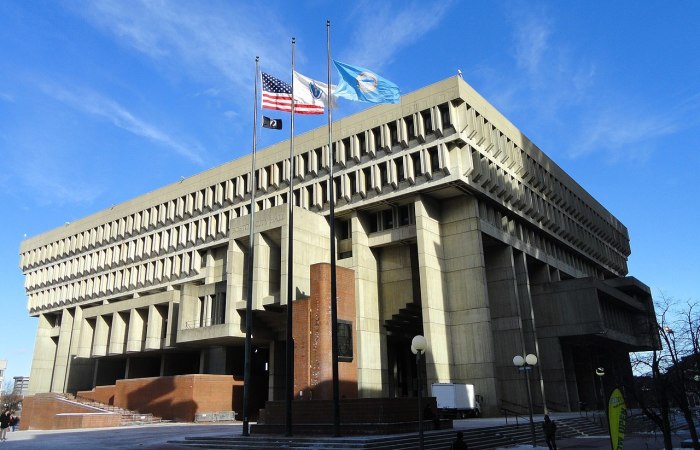Supreme Court to hear case over Boston's refusal to fly Christian flag at City Hall

The U.S. Supreme Court has agreed to hear an appeal regarding whether city officials in Boston, Massachusetts, can reject a request to fly a Christian flag at its City Hall.
In a miscellaneous orders list released Thursday, the Supreme Court granted a petition without comment in the case of Harold Shurtleff, et al. v. Boston, MA, et al.
The lawsuit was filed against the city of Boston by Shurtleff of the Christian civic organization Camp Constitution after the city refused to allow him to fly a "Christian flag" on one of the flag poles outside City Hall on Constitution Day 2017 while allowing other organizations to raise flags on one of the poles to celebrate their occasions.
Liberty Counsel Founder and Chairman Mat Staver, whose organization is representing Shurtleff, said in a statement that he is optimistic about the appeal and hopes the case will set a "precedent."
"We look forward to the U.S. Supreme Court hearing Boston's unconstitutional discrimination against Camp Constitution's Christian viewpoint. The city cannot deny the Christian flag because it is 'Christian' and allow every other flag to fly on its flagpoles," stated Staver.
"Censoring religious viewpoints in a public forum where secular viewpoints are permitted is unconstitutional and this case will set national precedent."
City officials denied Shurtlett's request to fly the flag, even though the public property had agreed to fly numerous other flags showcasing diverse religious and political opinions.
For example, Boston City Hall had approved the flying of a Turkish flag, which includes Islamic imagery, the gay pride rainbow flag and a transgender pride flag.
Lower courts have consistently ruled against Shurtlett thus far.
In February 2020, U.S. District Court Judge Denise Casper argued that the City Hall flagpoles constituted "government speech" and not private expression, which made flying a Christian flag an unlawful government endorsement of religion in violation of the Establishment Clause of the First Amendment.
"There are no additional facts in the record that would suggest any improper preference for non-religion over religion or selective treatment of any person or group based on religion," ruled Casper, an Obama appointee.
"The City did not alter its procedures for review of flag applications because of Camp Constitution's request, instead, Camp Constitution's request presented a novel issue for the City's consideration, which the City considered consistent with its practice and policy."
A three-judge panel of the U.S. Court of Appeals for the 1st Circuit unanimously upheld the lower court ruling in January, with Judge Bruce Selya writing the panel opinion.
Selya, a Reagan appointee, argued that the flag display would constitute government speech since it would be flown alongside two other flags representing the U.S. and Massachusetts. He alleged that the display of "three flags flying in close proximity communicates the symbolic unity of the three flags."
"It therefore strains credulity to believe that an observer would partition such a coordinated three-flag display … into a series of separate yet simultaneous messages (two that the government endorses and another as to which the government disclaims any relation)."
In the past, the Supreme Court has allowed the placement of religious symbols on public property.
In 2019, the Court ruled that a 40-foot tall cross commemorating World War I veterans on public property in Bladensburg, Maryland, did not violate the Constitution's Establishment Clause.
The Supreme Court is scheduled to hear oral arguments in the case of Shurtleff v. Boston in its upcoming October term, which will begin Monday. Liberty Counsel predicts that oral arguments in the case will occur early next year, with a decision issued by the end of June.



























